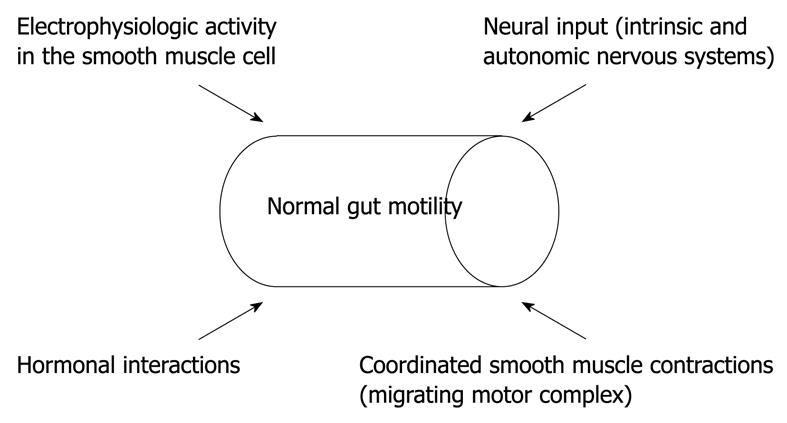Copyright
©2010 Baishideng.
World J Gastroenterol. May 7, 2010; 16(17): 2067-2074
Published online May 7, 2010. doi: 10.3748/wjg.v16.i17.2067
Published online May 7, 2010. doi: 10.3748/wjg.v16.i17.2067
Figure 1 Normal physiology of gut motility.
Figure 2 Pathogenesis of postoperative ileus.
1Laparoscopic surgery decreases the surgical stress and inflammatory response; 2Primarily exogenous opioids, e.g. morphine, binding to μ-receptors in the GI tract, which results in disorganized and non propulsive motility and, thus, prolongs ileus. In addition, activation of opioid receptors, which occurs following major abdominal surgery, inhibits acetylcholine release, reduces gastrointestinal motility, and has been demonstrated to play a key role in POI regulatory pathways[10,29,36-38]. Alvimopan inhibits this effect by blocking the pheripheral opioid μ receptor.
- Citation: Augestad KM, Delaney CP. Postoperative ileus: Impact of pharmacological treatment, laparoscopic surgery and enhanced recovery pathways. World J Gastroenterol 2010; 16(17): 2067-2074
- URL: https://www.wjgnet.com/1007-9327/full/v16/i17/2067.htm
- DOI: https://dx.doi.org/10.3748/wjg.v16.i17.2067










